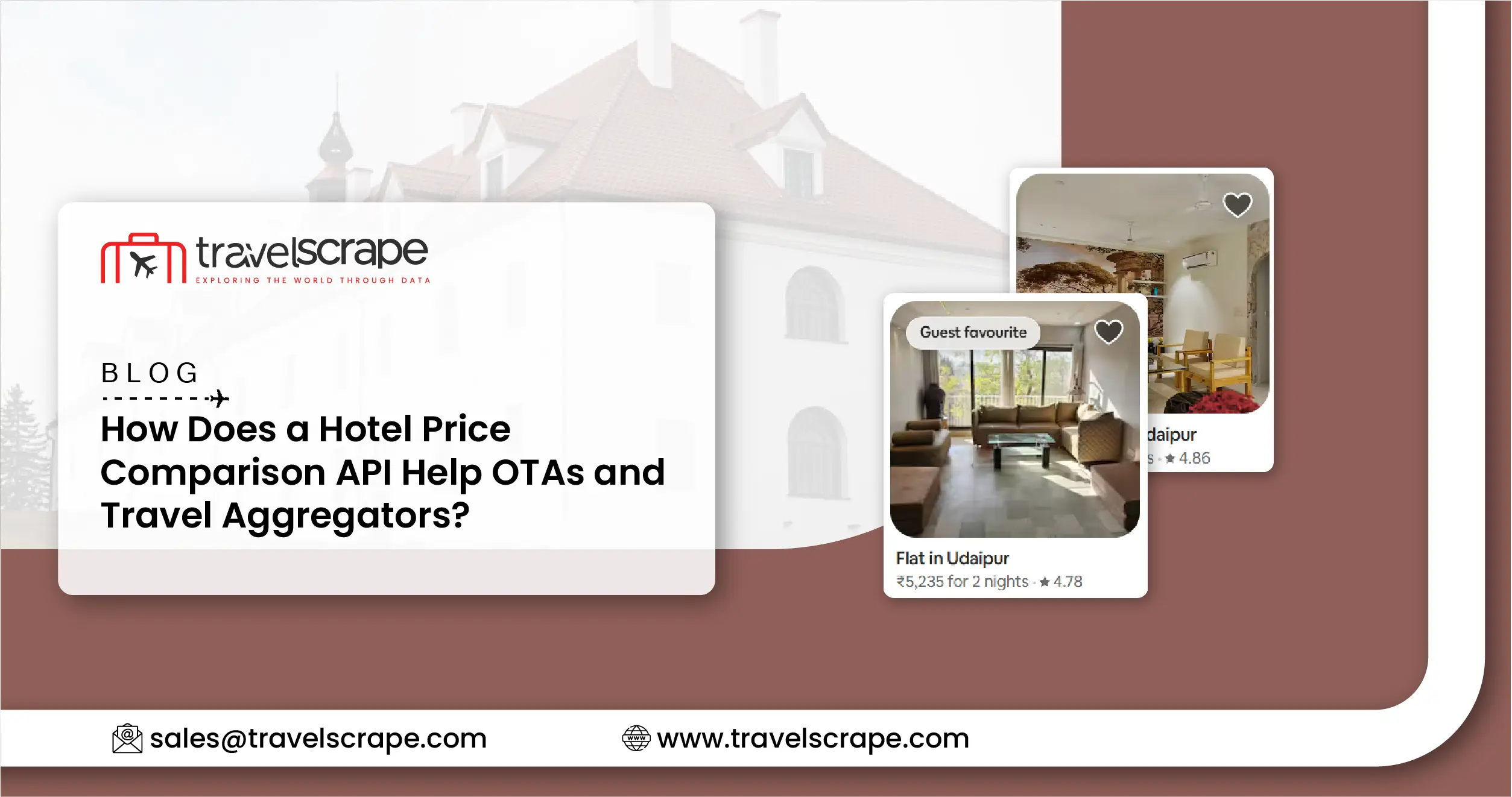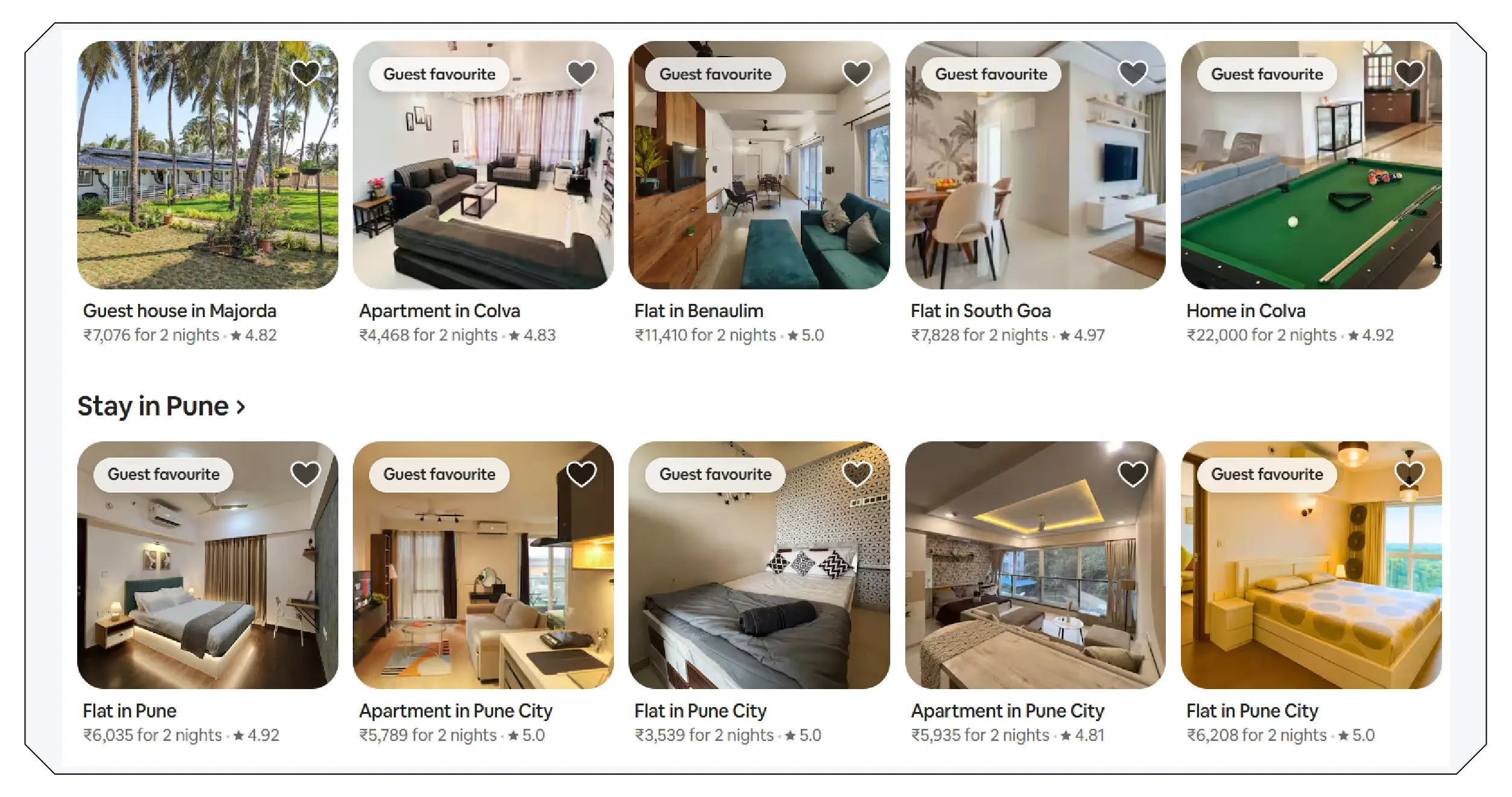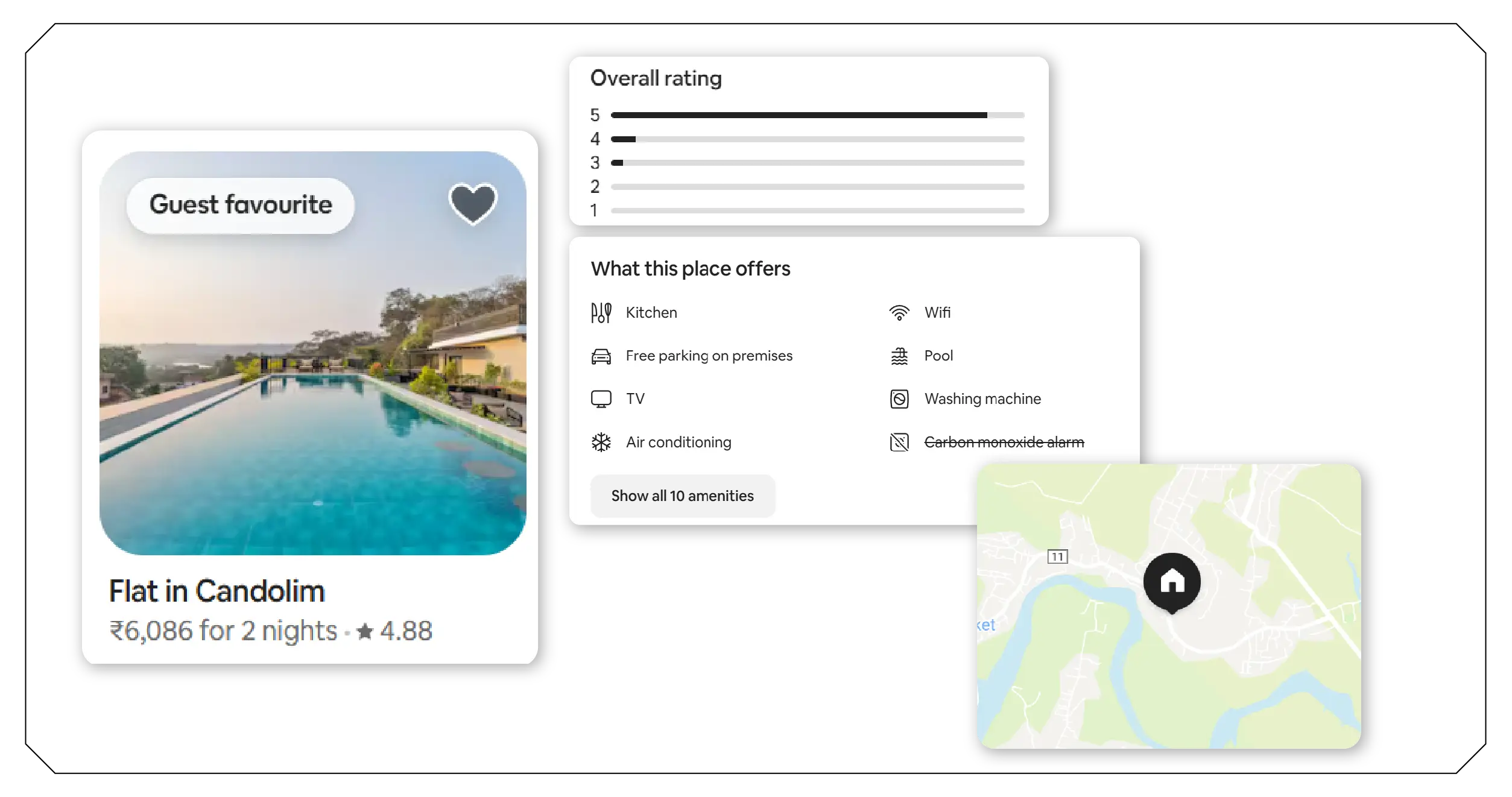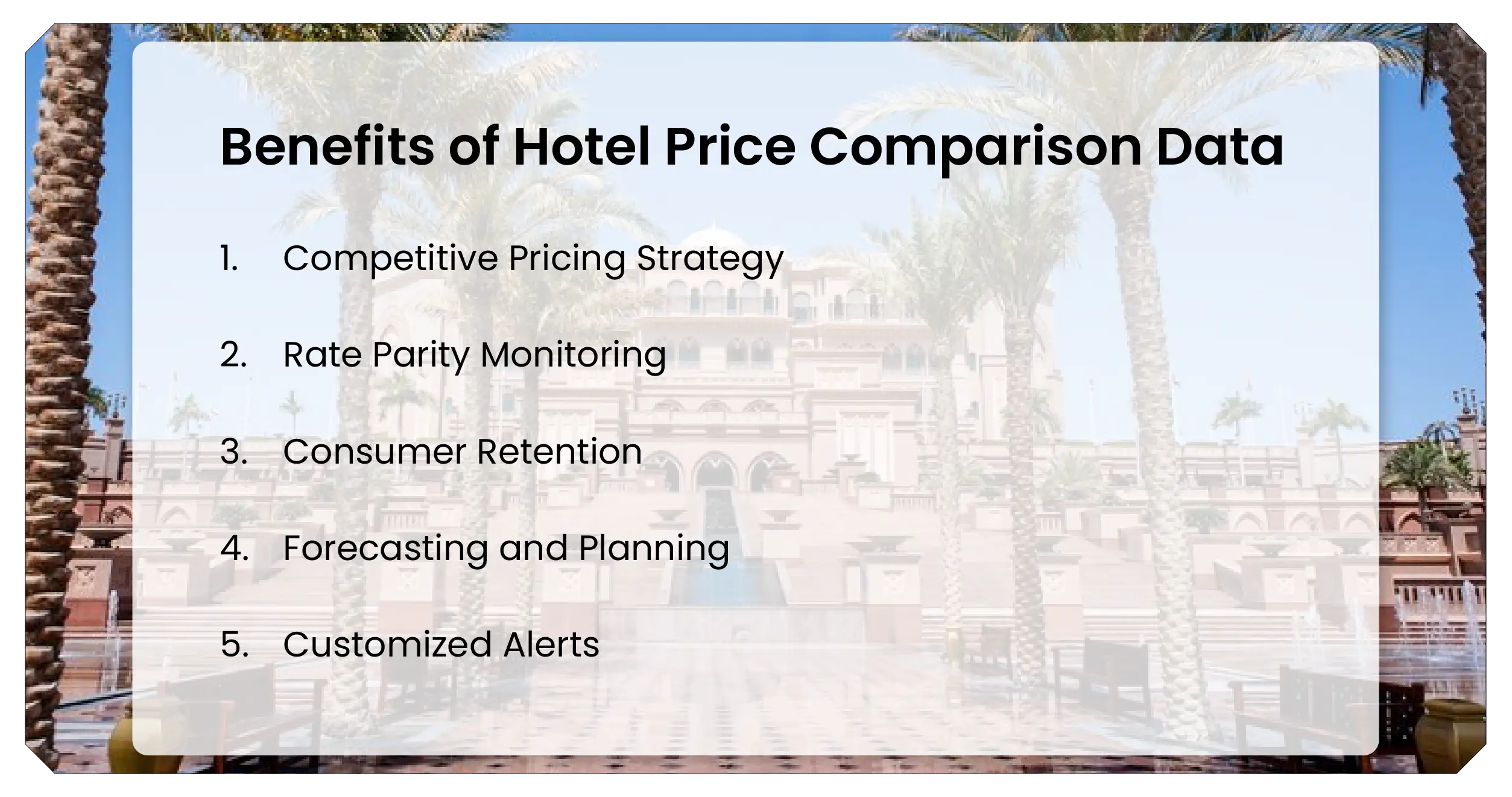How Does a Hotel Price Comparison API Help OTAs and Travel Aggregators?

Introduction
In today's highly competitive travel and accommodation industry, pricing transparency and data-driven strategies define success. With dynamic room rates, fluctuating demand, and multiple booking platforms offering different prices for the same property, travelers and businesses demand clarity. For businesses such as travel aggregators, hotel chains, or pricing intelligence platforms, integrating a Hotel Price Comparison API is the most efficient way to gather and analyze hotel rates across platforms like Booking.com, Agoda, and Airbnb. Using a well-designed Hotel Pricing Data API, organizations can gather real-time price quotes, room availability, and promotional offers across multiple platforms in a structured format. This enables not only price benchmarking but also insights into seasonal trends, competitor pricing strategies, and consumer behavior. Additionally, creating a Hotel Room Price Trends Dataset over time helps travel-tech companies forecast prices and optimize recommendation engines, benefiting both travelers and business operators.
Why Hotel Price Comparison Matters?

Hotels and online travel agencies (OTAs) use complex algorithms to manage their pricing strategies. A room listed on Booking.com may cost more or less than the same listing on Agoda or Airbnb, depending on variables like location, demand, commission structures, or regional pricing strategies. This makes price comparison crucial for:
- Travel aggregators, who must offer the best available rates.
- Hotel chains, looking to optimize rate parity across platforms.
- Consumers, trying to find the lowest price for the best value.
A system designed to extract hotel pricing data across multiple sources can provide a strategic edge. It supports pricing transparency, better consumer trust, and improved conversion rates for online platforms.
Key Differences in Booking.com, Agoda, and Airbnb Pricing
- Booking.com frequently changes its prices using dynamic pricing models that factor in room availability, user browsing behavior, and active promotions. The platform is primarily known for offering spontaneous flash sales and last-minute deals that attract price-sensitive travelers.
- Agoda, widely preferred across Asian regions, leverages dynamic pricing with region-specific discounts. It often encourages bulk bookings by offering bundled pricing options, especially for users booking extended stays or multiple rooms, making it attractive for group or long-term travel.
- Airbnb pricing varies depending on host-set rates, additional service charges, cleaning fees, and seasonal demand fluctuations. Unlike traditional OTAs, Airbnb supports a broader accommodation range, including entire homes or shared spaces, appealing to various traveler preferences and budgets.
A Real-Time Hotel Price Comparison tool powered by APIs can help dissect and analyze these variables with speed and precision.
Technical Overview: How Hotel Price Comparison APIs Work

The basic function of a hotel comparison API is to collect real-time data across platforms, organize it, and serve it in a structured format such as JSON or XML. A robust Booking.com data scraping API will typically handle:
- Property search by location, date, and occupancy
- Rate extraction (nightly rates, taxes, fees)
- Room type details (standard, deluxe, suite)
- Availability tracking
- Cancellation policy and refund eligibility
These capabilities are mirrored in APIs designed for Agoda and Airbnb. Whether you're doing Hotel Data Extraction for internal dashboards or public-facing applications, data freshness and accuracy are critical.
What Data Can You Collect?
Here's what your API should ideally return from each platform:
- Property name and ID
- Location details (latitude, longitude, city, country)
- Nightly rate with breakdown (base price, service fee, tax)
- Room type and bed configuration
- Cancellation policy
- Check-in and check-out timings
- Amenities offered
- Current availability and booking restrictions
- Host or property ratings
- Number of reviews
Such extensive data captured through Travel Scraping API Services ensures a high level of insight for pricing tools, mobile apps, or market research teams.
Building a Price Intelligence Dashboard
To build a price comparison tool or dashboard using scraped data:
- Input Layer: Allow users to select the destination, dates, and number of guests.
- API Requests: Trigger API calls to Booking.com, Agoda, and Airbnb.
- Data Normalization: Clean and standardize data (e.g., currency, date formats).
- Comparison Logic: Highlight the lowest prices, best amenities, and availability.
- Visualization: Use charts and cards to display pricing changes and trends.
Companies that collect hotel pricing and availability data at scale can create intuitive dashboards that drive smarter travel choices and optimize vendor relationships.
Benefits of Hotel Price Comparison Data

Hotel Price Comparison Data offers critical insights for travel businesses to stay competitive. It enables better pricing strategies, improves user experience by showing real-time rates, and ensures rate transparency. By leveraging this data, companies can enhance decision-making, optimize revenue, and deliver more value to price-conscious travelers.
- Competitive Pricing Strategy — Gain insights into how your hotel's rates compare with competitors in the same area. This allows you to dynamically adjust your pricing strategy to remain attractive to potential guests, ensuring you're neither overpriced nor undervalued in the eyes of your target customer base.
- Rate Parity Monitoring — Monitor your hotel's pricing across multiple OTAs to detect any inconsistencies or unauthorized rate differences. Ensuring rate parity not only protects your brand's integrity but also helps maintain trust with booking platforms and prevents loss of revenue due to unfair pricing variations.
- Consumer Retention — Offering a platform that displays the best prices from various sources helps keep users engaged. When customers see real-time price comparisons, they feel confident in making a booking decision, improving retention rates, and boosting conversion by positioning your site as a reliable booking assistant.
- Forecasting and Planning — Leverage historical hotel pricing data to create a Hotel Room Price Trends Dataset. This enables accurate forecasting of high-demand periods, seasonal slumps, and promotional outcomes, helping hotel managers optimize revenue, allocate resources effectively, and plan marketing campaigns around expected pricing behavior.
- Customized Alerts — Configure real-time alerts for price drops or increases for particular hotels or destinations. This empowers travel platforms and users to act quickly—either by securing a great deal or adjusting booking strategies—making your platform more responsive, data-driven, and competitive in fast-moving travel markets.
Advanced Use Cases for Hotel Price Scraping
- Scraping Frameworks: Puppeteer, Selenium, Scrapy
- Proxy Rotators: For IP management and geo-targeted scraping
- Headless Browsers: To render dynamic pages and JavaScript-heavy content
- Data Pipelines: For real-time ingestion and transformation using tools like Kafka, Airflow, or AWS Lambda
- APIs: RESTful APIs for querying and serving the extracted data
Executing Hotel Price Comparison Data Scraping at scale enables these advanced capabilities. The accuracy and reliability of the data directly impact the effectiveness of the resulting applications.
Tools & Technologies Involved
- Scraping Frameworks: Puppeteer, Selenium, Scrapy
- Proxy Rotators: For IP management and geo-targeted scraping
- Headless Browsers: To render dynamic pages and JavaScript-heavy content
- Data Pipelines: For real-time ingestion and transformation using tools like Kafka, Airflow, or AWS Lambda
- APIs: RESTful APIs for querying and serving the extracted data
A mature scraping system, whether for Agoda or Airbnb, often incorporates fallback logic, anti-bot bypassing techniques, and multi-layer validation to ensure data consistency.
Challenges & Considerations
- Dynamic Pricing & Flash Sales: Prices can change hourly, especially for last-minute bookings. Real-time scraping frequency must be high.
- Geo-Blocked Content: Some listings or pricing may be region-specific. Use rotating proxies and geo-IP targeting.
- Terms of Service Compliance: Ensure your scraping efforts comply with each platform's policies. Using public APIs when available or partnering with data vendors can mitigate risks.
- Latency Issues: API response times must be fast for consumer-facing apps.
- Data Volume & Storage: Large-scale scraping requires scalable storage solutions like BigQuery, Redshift, or Snowflake.
Airbnb and Agoda: Specific Considerations
While Booking.com and Agoda typically present structured, OTA-style listings, Airbnb has a more decentralized model, with hosts setting their own rules and prices.
Using an Airbnb pricing data extractor lets you track:
- Cleaning and service fees
- Weekend vs weekday pricing
- Minimum stay restrictions
- Superhost status
- Occupancy calendars
For Agoda hotel price comparison, you'll need tools that can handle region-specific promotions, loyalty discounts, and bundled deals, especially popular in Southeast Asia.
Real Business Impacts
- 15–30% increase in booking conversions
- Significant improvement in pricing transparency
- Better vendor relationships through rate parity enforcement
- Improved traveler satisfaction through optimized recommendations
From a product perspective, you'll be able to A/B test pricing displays, optimize listing order, and personalize offerings based on user behavior and historical data.
How Travel Scrape Can Help You?
- Hotel and OTA Price Monitoring — We extract real-time room rates, discounts, and availability from platforms like Booking.com, Agoda, and Expedia to help you stay competitive with accurate pricing insights.
- Flight Fare Tracking — Our service captures dynamic airfare trends, airline promotions, and route-based pricing data, allowing you to analyze fluctuations and identify the best travel deals or optimal booking windows.
- Review and Rating Extraction — We gather user reviews, ratings, and sentiment data from travel platforms to provide valuable insights into customer preferences, satisfaction levels, and hotel or destination reputations.
- Tour and Experience Listings Scraping — Collect detailed information on local tours, activities, and experiences listed on platforms like Viator or GetYourGuide, helping you analyze offerings, pricing, and seasonal trends.
- Custom Alerts and Trend Dashboards — We provide tailored alerts for price changes or availability shifts and build trend dashboards to visualize booking patterns, peak seasons, and promotional performance across the travel ecosystem.
Conclusion
As hotel prices continue to fluctuate across platforms and markets, businesses must adapt quickly. API-powered scraping provides the real-time visibility needed to stay competitive. Whether you're building a new travel platform or optimizing an existing one, being able to scrape hotel prices from Agoda, Airbnb, and Booking.com unlocks unmatched flexibility and intelligence.
By leveraging a Hotel rate scraping API for price comparison tools, businesses can access up-to-date pricing, room features, and availability details. These insights can drive better user experiences, smarter pricing strategies, and stronger vendor partnerships. When combined with a real-time hotel pricing and availability API, you empower your organization to make decisions faster, forecast demand more accurately, and serve your customers better.
From tourism startups to global travel aggregators, hotel price comparison via scraping and API integration is no longer optional—it's essential for staying ahead in the rapidly evolving accommodation market.
Ready to elevate your travel business with cutting-edge data insights? Get in touch with Travel Scrape today to explore how our end-to-end data solutions can uncover new revenue streams, enhance your offerings, and strengthen your competitive edge in the travel market.